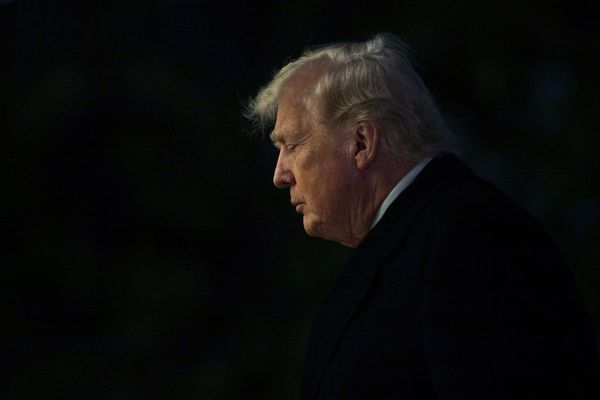South Australia's Premier Peter Malinauskas has conceded he does not expect the state's First Nations Voice to Parliament to lead to sudden improvements but hopes that "over years and decades to come, there is some positive change".
Yesterday, South Australia became the first jurisdiction in the country to set up an Indigenous Voice to Parliament.
The special Sunday sitting of the state parliament passed the bill creating the Voice, which was assented to by South Australia's governor in a ceremonial meeting of the state's executive council.
Thousands of people gathered outside Parliament House to witness the passing of the bill, which was projected live on a screen for all to see.
But now that the ceremony is over, attention will turn to the implementation of the Voice and undoubtedly to the effectiveness of the legislation.
What will the Voice achieve?
Mr Malinauskas told ABC Radio Adelaide's Breakfast program this morning that there were a number of ways the effectiveness of the Voice would be measured, including through the Closing the Gap report handed down to the federal government each year.
"Most ABC listeners would be well aware of the extraordinary disparity we see between national averages and those that are experienced by Indigenous communities, and turning that around is going to take a long-term effort and a lot of thoughtful policy," he said.
"I don't want to mislead listeners in any way ... I don't think that the establishment of the South Australian Voice to Parliament means that next year all of sudden we start to see extraordinary improvements.
"We just hope that over time, as legislation goes through parliament, as we see various iterations of policies considered over years and decades to come, there is some positive change."
Mr Malinauskas said he would deem the Voice as failed if there was no improvement reflected in the Closing the Gap statistics.
"I don't think there is anything lost by engaging with the people that various policies and laws affect the most, and that's what the Voice facilitates," he said.
Who will be on South Australia's Voice?
Elections will be held later this year to determine the make-up of the Voice, with the state's Indigenous population eligible to vote for six men and six women once the electoral boundaries have been determined.
The South Australian Commissioner for a First Nations Voice, Dale Agius, said he would encourage people to vote.
"I'll go out and speak again with communities talking with them about the importance of being enrolled on the electoral roll for them to express their views," he said.
"And express their democratic right to vote for people who they think are suitable and the best candidates they have in their regions."
Overall, 46 people will be elected, and then 12 of those will form the Voice and be able to speak at the second reading stage of any bill before the SA parliament.
"It doesn't diminish anyone else's vote, it doesn't take anyone else's authorities in the parliament, it doesn't overrule or veto any legislation," Mr Malinauskas said.
How will the Voice work?
Mr Malinauskas said the Voice would be able to speak on whichever pieces of legislation they choose.
"So the Voice will have the ability to speak on at the second reading stage of the bill, in one house of the parliament," he said.
"It'll be up to them to determine which piece of legislation they want to speak to.
"And at the second reading stage, their contribution will not be dissimilar to other MPs, except, of course, that the voice doesn't have a vote."
Does parliament have to listen to the Voice?
Mr Malinauskas admitted the Voice could be ignored.
"The short answer to that question is yes," he said.
"The Voice to Parliament doesn't mean that the parliament will necessarily agree with everything that the Voice has to say.
"But I don't think that is anything to fear because that will allow the democratic process to run its course.
"If the parliament ignores the suggestions of the Voice, then parliament, individual MPs, governments, oppositions will have to be held to account accordingly by the electorate."
Is everyone on board with South Australia's Voice?
The SA Liberal Party did not support the legislation, with opposition leader David Speirs telling ABC Radio Adelaide's Breakfast program that he was not confident the Voice would be successful.
"Yesterday was a day of symbolic celebration, and for many people it probably gave a sense of hope that we can create better outcomes for Aboriginal people in South Australia, but I think there are real challenges, and I'm not sure this model is the thing to solve it," he said.
"I hope it improves the lives and healthcare outcomes and educational outcomes and prison rates of Aboriginal people, but I saw no evidence of that in the legislation.
"I think it's a very complex area and I think there will be some real challenges when we get into the detail of implementation but I wish them well."
Can the Voice be changed?
Yes, it can.
The SA Voice has been legislated, not enshrined in the state's constitution.
That means the public did not vote on whether or not the body should exist, and it will be able to be changed or abolished by future governments.
Mr Agius said with that in mind, it would be crucial for the first Voice body to hit the ground running.
"There is a level of hesitation here from with the Aboriginal and Torres Strait Island community and our supporters," Mr Agius said.
"There's some worry that future governments could scale this back.
"What we do have here is a clause for review of legislation after two or three years, so it'll be crucial for those first nominees to really hit the ground running."







